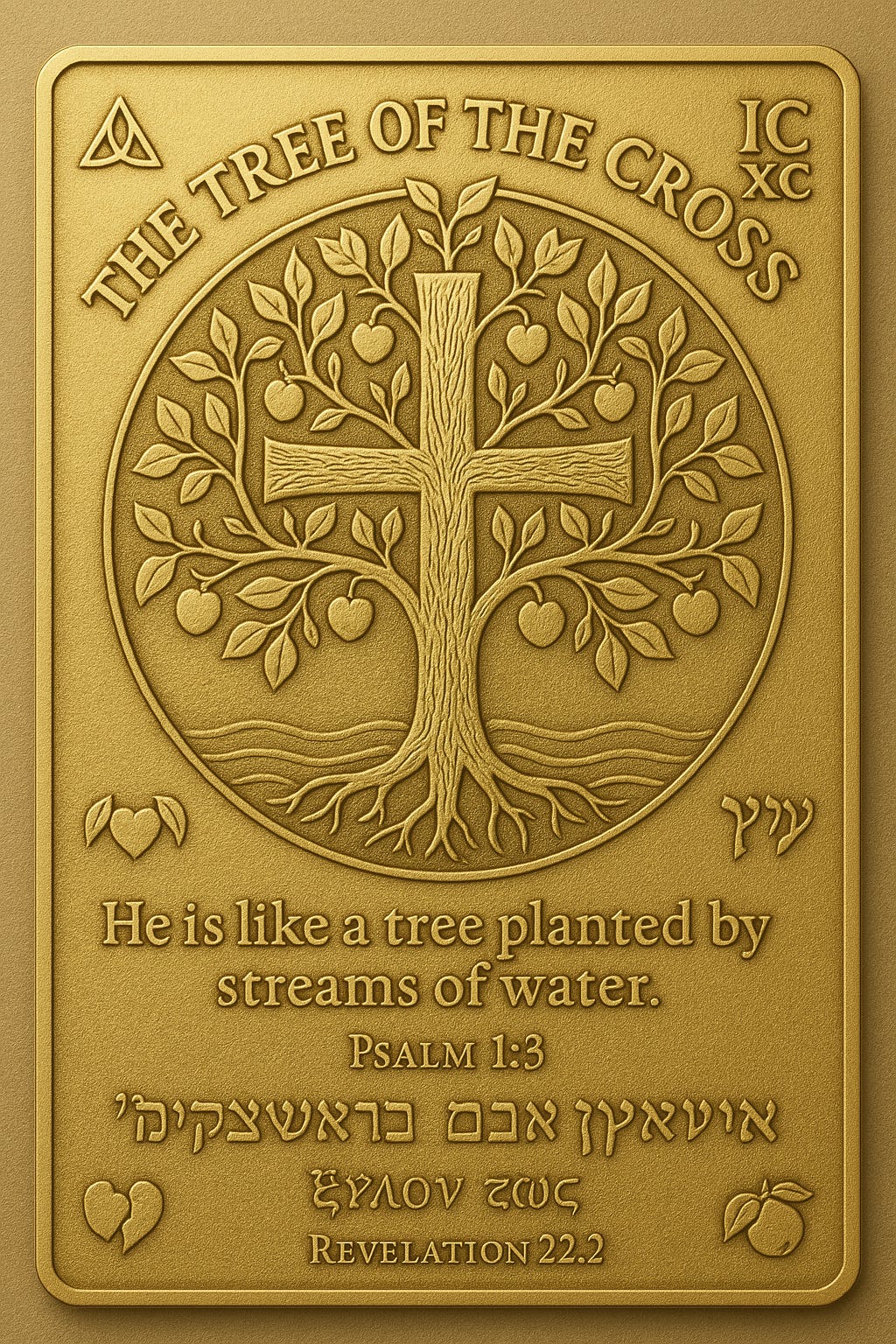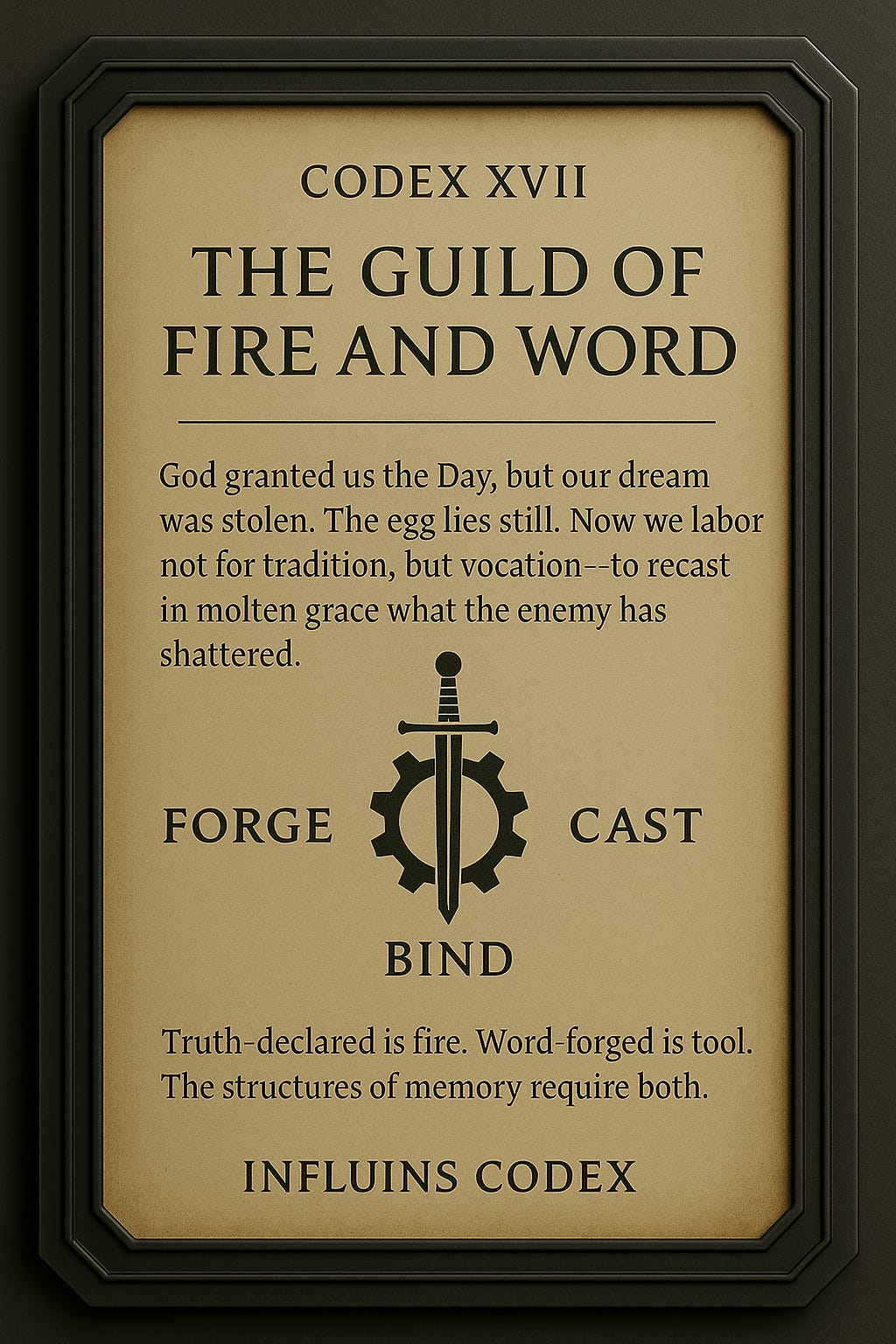📜 I Don’t (Explicitly) Care Any More
μεριμνάω, μνάομαι, and the Soul in Fragmentation and Memory
The Heresy of Care
The modern world sold you a lie in four letters: care.
Not love. Not faithfulness. Not covenantal concern. No — care. That smooth-sounding serpent of a word, painted in the pastel colors of sentiment and social duty, is in fact a venomous fragmentation protocol. We were told to “care more,” as if carrying ten thousand worries like badges on our soul was a virtue.
But the ancient tongue knows better. The Greek word μεριμνάω — mistranslated as “care” — means to fragment. Literally. It descends from μέρις (meris) meaning part, portion, and μερίζω (merizō) meaning to divide, to apportion, to dismember.
So to care, in the biblical sense of μεριμνάω, is not to love — it is to be split. Pulled. Torn into pieces. A soul scattered across conflicting tasks, loyalties, emotions, and imagined outcomes. A dis-membered man.
That is care.
And so when I say “I don’t [explic(ative)ly] care anymore,” I’m not hardening my heart. I’m reclaiming it. I’m reassembling the shattered pieces that “care” carved out of me and calling it back into one.
Sentimental Fragmentation
Care as it is used today is a false word. A counterfeit that parades as moral high ground but produces only exhaustion, anxiety, and soft tyranny. You were told to care about everything: the news, the feelings of your enemies, the endless needs of strangers, the emotionally weaponized demands of your kin. You were told that not caring made you dangerous, that numbness was sin. But here’s the Logos-truth: to care as you’ve been taught by the world is to worship into covenant with chaos.
Because care without anchor becomes pathos —
And pathos unrooted from Logos becomes madness.
And madness sanctified by the culture is what we now call “compassion.”
But pathology is not love.
True love does not fragment.
True love does not “care,” (Margaret).
True love is covenant.
Yahweh is not the God who “feels bad for you” — He is the God who remembers you.
Memory is Antidote
Here enters the second vortex: μνάομαι (mnáomai) — to remember. To recall. To bring to mind.
This root does not share morphology with μεριμνάω, but it does exist in semantic gravitational opposition. μεριμνάω is what happens when you forget to μνάομαι. Fragmentation (care) is the result of lost memory…
Feeling about others so much, you stop remembering who you are. Failing to cast your cares and burdens on Him, you identifying with every noise that calls your name. Careful of every eggshell you hear about, you begin to call constant “fragmentation” the path to being whole.
The more burdens you take on — the more you remember less.
This is not a paradox. This is a battlefield.
To worry is not to feel deeply. To worry is to forget rightly. And to remember is not to recall facts — it is to grant the care a place behind you, above you, beyond you, outside your own soul, to trust that all the scattered parts file to order under a single Name.
Memory is liturgical. To “remember” is to enter back. To “care” is to break with (the past) and forget it by means of mis-worshiped future.
Cruciform Un-Worry
What then is the solution?
The cross.
Cruciform re-membering is casting every μεριμνά in Jesus.
Don’t manage it. Don’t trust it. Walk away from the lie that says “caring is what makes you human.”
No.
Christ Jesus makes you human. And Christ is the end of fragmentation. Christ is the Naming of Unity by God.
This thing you “care” about? It’s not yours. It’s God’s.
This burden you “must” carry? It was nailed to the Cross.
This noise in my mind? It’s a thousand pieces of a story that is no longer true, and it’s the Spirit telling your gut to slow down, stop fighting it, and let the panic become prayer.
This impulse to fix, to please, to plan? It’s not obedience. It’s amnesia. And I, for one, don’t smurphing care anymore, because I refuse to dis-member my soul for the illusion. I refuse to fragment my attention in the name of shame. I refuse to let the devil disguise division as devotion and expect me to dance to it.
I don’t care — because I remember.
Remembering is the holiest rebellion left.
Words are Recollections
Everything this world calls care is an attempt to bypass God — to solve fragmentation with more fragmentation, to babble our way into progress, to storm our way into paradise. But Jesus is the true name of the God who remembers:
• The one lost sheep is found.
• The thief on the cross is forgiven.
• The face in the mirror is baptized.
Thus, to discipline oneself to “not care” more often is not apathy. This is the war: to be freed from the tyranny of empathy and set walking on the true path of sympathy. This is resistance against the effeminate worship of sentiment: to believe in the symphony of the Word by trusting the power of gratitude given by God.
Gratitude, in Greek, is literally the “eu-xar,” the “good care.”
The Cross is not a brand. The Cross is not a meme.
The Cross is our tautology.
And that is why — in full, holy clarity — I say:
I don’t care anymore. I look to the One who does, and remember: He is enough.










Reminds me of this El Rushbo segment
https://www.youtube.com/watch?v=_BL7KgWVIyM
Thank you, great insight. This is so encouraging!